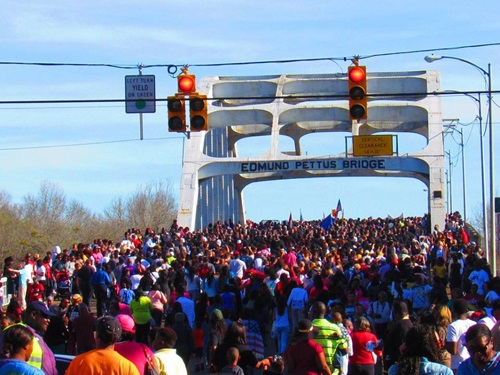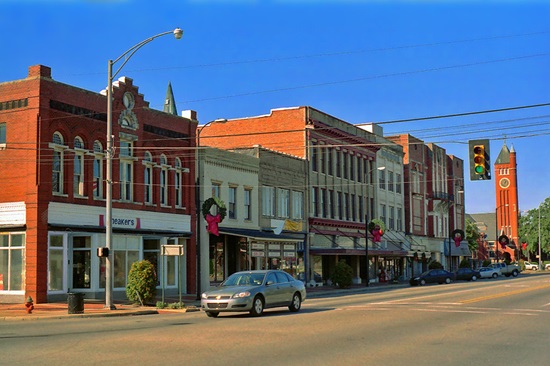
Fast, affordable Internet access for all.

Selma, Alabama – and parts of 16 other communities in eight different counties – will soon be connected to a new, $230 million open access fiber network that aims to bring affordable broadband to historically marginalized sections of the Yellowhammer State.
The deployment comes courtesy of a public private partnership (PPP) the city has struck with Meridiam Infrastructure and Meridiam-owned YellowHammer IT, an agreement that will expand fiber access across Alabama’s Black Belt region on the back of a $5.1 million Capital Projects Fund (CPF) grant.
At a March 2 press conference, Selma Mayor James Perkins Jr. said the partnership with Meridiam and Yellowhammer should result in fiber access being deployed to 85 percent of city homes and businesses, regardless of residents’ income levels, with $45 million of the $230 million investment dedicated to bring fiber service to Selma, the “Queen City of the Black Belt.”

“High-speed reliable broadband is no longer nice to have. Today, it’s as important as gas, water, and electricity,” Perkins stated at the event. “In our increasingly digital society, cities without access to fiber broadband risk falling behind. It’s critical that the City of Selma makes fiber broadband accessible citywide by building utility-like infrastructure that serves our residents’ needs today and for generations to come.”
Meridiam will fund the entirety of the $230 million in estimated construction costs and own the finished network assets. The completed network will stretch more than 300 miles and offer fiber service to 53,000 households and businesses across Selma (est. pop. 17,000), Demopolis, and 15 other towns in the region.
As network construction gets underway, which Meridiam estimates should be completed by June 2027, Internet service providers (ISPs) will be sought out to offer retail service over the network. It’s a model that has become an increasingly popular way to build broadband infrastructure, as it’s been shown to drive down prices for subscribers by fostering a marketplace of choice and competition.
A Massive Regional Boost To Meaningful Broadband Competition
Charter (Spectrum) enjoys an uncontested monopoly on broadband access across much of the target area. This lack of competition results in higher prices, spotty coverage, slow speeds, and some of the worst customer satisfaction and service ratings of any industry in America.
The problem of spotty access is particularly pronounced in states like Alabama, where FCC data indicates that somewhere around 30 percent of residents lack any access to broadband whatsoever (though the FCC is notorious for over-stating real-world broadband availability and under-stating the broader lack of broadband competition).

This broadband digital divide disproportionately impacts marginalized and low-income communities of color. Federal regulators only just this year formally acknowledged that broadband deployment disparities in many minority communities could be tied to decades of digital discrimination.
While agencies like the FCC have stated it would attempt to police future digital discrimination in broadband deployment (a subject of a lawsuit filed by organizations representing the cable industry), the agency fell well short of naming big ISPs with a history of such discrimination, or taking action against past discrimination across large parts of rural and urban America.
The new fiber network will be open access, meaning that multiple additional ISPs can come in and compete on the shared regional infrastructure. Studies have repeatedly shown that open access networks lead to greater competition, lower prices, faster speed, fewer onerous fees, and better overall customer service.
While Meridiam has yet to indicate the full roster of partner ISPs, a company announcement states that Springfield, Massachusetts-based Omnipoint Technologies will serve as the open access network’s anchor tenant and initial ISP partner.
Omnipoint provides broadband service across 11 mostly-Southern states. In many of these markets the ISP offers symmetrical 300 Mbps (megabit per second) service for $50 a month; symmetrical 500 Mbps service for $75 a month; symmetrical 1 Gbps (gigabit per second) service for $85 a month; and symmetrical 2 Gbps service for $140 a month.
Omnipoint provides its fiber customers with a variety of additional television and wireless phone bundles, and its service tiers have no hidden fees, usage caps, or long-term contracts.
Even, Equitable Deployment, Hopefully
Yellowhammer and Omnipoint say they will work with local officials and non-profits to ensure equitable deployment of affordable fiber access to low-income residents. Such state and localized efforts have taken on renewed urgency with the looming shutdown of the FCC’s Affordable Connectivity Program (ACP), which provided a $35 discount to low-income families.

“Meridiam is dedicated to filling critical fiber infrastructure gaps and helping eliminate the divide that excludes millions of people from our digital society and compromises economic growth for all,” Meridiam CEO Nicolas Rubio said in a press release. “Yellowhammer Networks is determined to make high-speed fiber broadband accessible to residents throughout Selma and the region regardless of their income levels.”
Spanning 17 municipalities in the region, construction of the open access network is slated to begin this month. While the network is expected to serve 53,000 homes and businesses, Meridiam did not respond to requests for comment on the total expected homes passed, or how the companies intend to ensure uniform availability and consistent affordability for historically-marginalized communities in the region.
As ILSR has explored extensively, PPPs can reduce the financial and logistical burdens on municipalities unwilling to directly engage in a citywide fiber build. But the city often doesn’t control the finished network, or the trajectory of service pricing and potential price hikes.
The $148.3 million in Capital Projects Fund grants funding Alabama’s latest broadband expansion were made possible by 2021 federal Coronavirus relief legislation contained in the American Rescue Plan Act. The lion’s share of that funding – including $44.8 million awarded to Charter in the form of 22 grants – continues to go to many of the same companies that spent years undermining competitive efforts to shore up broadband access, disproportionately harming communities of color.

Alabama is also one of 17 states that have enacted state laws – usually lobbied for by regional telecom giants like Charter – that ban or restrict community owned and operated broadband networks, despite these networks’ proven ability to deliver benefits to subscribers.
In addition to the state’s recently announced last mile broadband grants, Alabama officials also recently announced $188 million in middle mile grants designed to “help fill the gap in broadband expansion to make it more economically feasible and less labor intensive for providers to extend services to unserved businesses and households in the state.”
The state is also poised to receive more than $1.5 billion in BEAD grants made possible by the 2021 infrastructure bill.
Header image of Selma sign courtesy, of Jimmy Emerson, Attribution-NonCommercial-NoDerivs 2.0 Generic
Inline image of Selma Mayor James Perkins Jr courtesy of city website
Inline image of march on Edmund Pettus Bridge courtesy of Wikimedia Commons, Attribution-ShareAlike 4.0 International
Inline image of downtown Selma courtesy of Steven Martin, Attribution-NonCommercial-NoDerivs 2.0 Generic
Inline image of buildings along the Alabama River bank in Selma courtesy of Ron Cogswell, Attribution 2.0 Generic
